
Skincare Recipes for Your Self-Care Routine
Share
Expert Tips and Tricks

Skincare is an essential part of self-care, and there's no doubt that taking care of your skin can make you feel good both inside and out.
However, with so many skincare products available in the market, it can be challenging to find the right one that suits your skin type.
An alternative to store-bought skincare products is to make your own skincare recipes using natural ingredients.
Not only is it cost-effective, but it also ensures that you know what ingredients are going into your skincare routine.
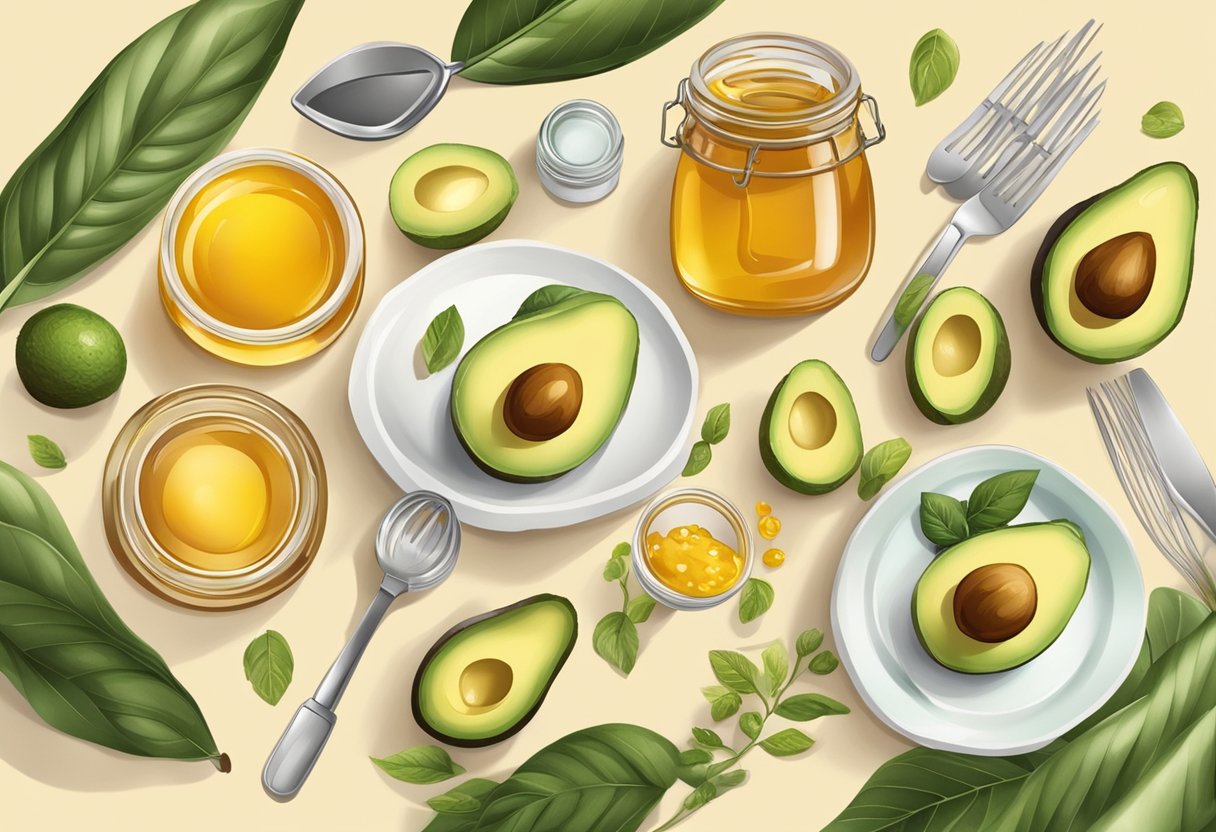
There are many skincare recipes available online that you can make at home using natural ingredients.
Whether you have oily, dry, or combination skin, there is a recipe that will suit your skin type. From face masks to body lotions, these recipes are easy to make and often use ingredients that can be found in your kitchen pantry.
By making your own skincare recipes, you can tailor them to your skin's needs and preferences, making your self-care routine even more personalised.
Understanding Your Skin Type
Before diving into skincare recipes, it's important to understand your skin type. Knowing your skin type can help you choose the right products and ingredients that work best for you. Here are the five main skin types:
1. Normal Skin
Normal skin is well-balanced, with a healthy glow and no blemishes. It's not too oily or too dry, and it's not sensitive to products or environmental factors.
2. Dry Skin
Dry skin lacks moisture and can feel tight and itchy. It's prone to flakiness and can look dull and rough. People with dry skin should look for products that hydrate and moisturize.
3. Oily Skin
Oily skin produces excess oil, which can lead to clogged pores and acne breakouts.
It can have a shiny appearance and feel greasy to the touch. People with oily skin should look for products that help control oil production.
4. Combination Skin
Combination skin is a mix of oily and dry areas. The T-zone (forehead, nose, and chin) tends to be oily, while the cheeks and other areas are dry.
People with combination skin should look for products that balance oil production and provide hydration.
5. Sensitive Skin
Sensitive skin is easily irritated and can react to products, weather, and other environmental factors. It can feel itchy, dry, and tight.
People with sensitive skin should look for products that are gentle and free from harsh chemicals and fragrances.
Once you know your skin type, you can choose the right skincare recipes that cater to your specific needs.
Remember, everyone's skin is different, so what works for one person may not work for another. It's important to experiment and find what works best for you and your skin.
Importance of a Skincare Routine
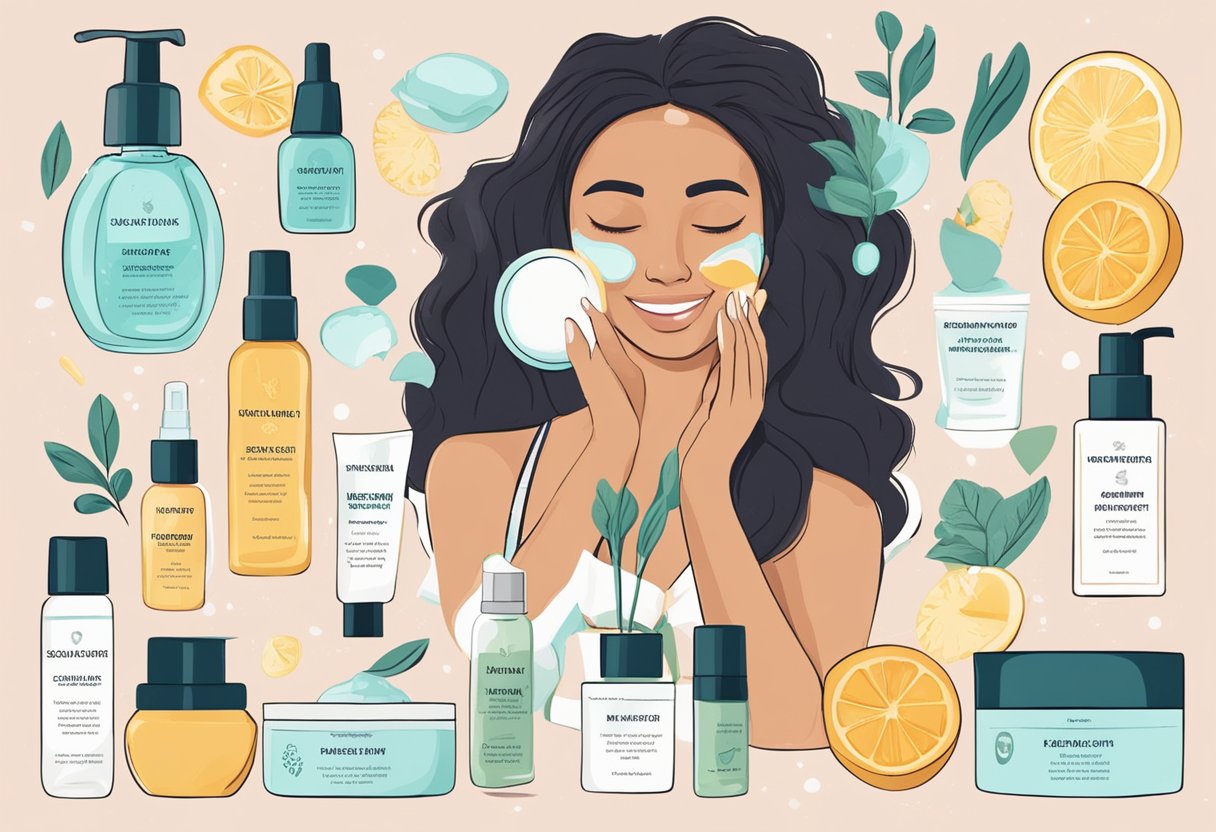
Taking care of your skin is an essential part of a healthy lifestyle. The skin is the largest organ in the human body, and it plays a vital role in protecting the body from external factors such as pollution, UV rays, and bacteria.
Therefore, it is essential to maintain a proper skincare routine to keep your skin healthy and glowing.
A good skincare routine can help prevent premature ageing, acne, and other skin problems. It can also help to improve the texture and appearance of your skin.
A skincare routine involves cleansing, toning, moisturising, and protecting your skin from harmful UV rays.
Cleansing is the first step in any skincare routine. It involves removing dirt, oil, and makeup from your skin.
A gentle cleanser can help to unclog pores and prevent breakouts. Toning helps to remove any remaining dirt or oil from your skin and prepares it for moisturising.
Moisturising is essential to keep your skin hydrated and prevent dryness. Finally, protecting your skin from harmful UV rays is crucial to prevent skin damage and premature ageing.
In addition to the above steps, a skincare routine can also include exfoliating, using face masks, and incorporating natural ingredients such as honey, aloe vera, and tea tree oil. These ingredients can help to soothe and nourish the skin.
Overall, a skincare routine is essential to maintain healthy and radiant skin. A consistent routine can help to prevent skin problems and keep your skin looking its best.
It is important to remember that everyone's skin is unique, and different skin types may require different products and routines.
Therefore, it is essential to find a routine that works for you and your skin type.
Natural Ingredients and Their Benefits
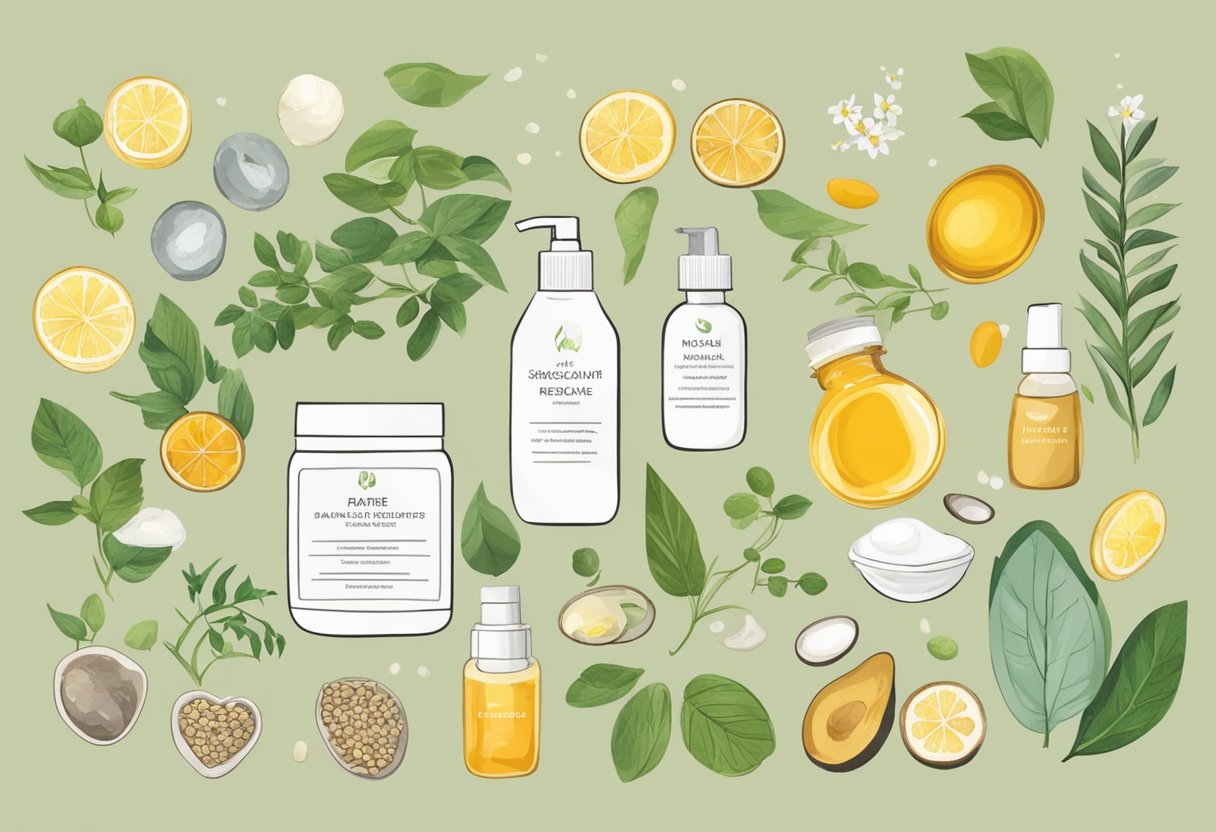
Skincare recipes that use natural ingredients are becoming increasingly popular as people seek to avoid harsh chemicals and synthetic products.
Here are some natural ingredients and their benefits that can be used in skincare recipes:
Benefits of Honey
Honey is a natural humectant, which means it helps to retain moisture in the skin. It also has antibacterial properties that can help to prevent acne and other skin infections.
Honey is also rich in antioxidants, which can help to protect the skin from damage caused by free radicals.
Advantages of Aloe Vera
Aloe vera is a succulent plant that has been used for centuries for its medicinal properties. It is commonly used in skincare products because it is rich in vitamins and minerals that can help to soothe and hydrate the skin.
Aloe vera also has anti-inflammatory properties that can help to reduce redness and irritation.
Importance of Green Tea
Green tea is rich in antioxidants called catechins, which can help to protect the skin from damage caused by UV radiation and pollution.
It also has anti-inflammatory properties that can help to reduce redness and irritation. Green tea can be used in skincare recipes as a toner or as an ingredient in a face mask.
Significance of Coconut Oil
Coconut oil is a natural moisturiser that can help to hydrate and nourish the skin. It is rich in fatty acids that can help to repair the skin's natural barrier and prevent moisture loss.
Coconut oil also has anti-inflammatory and antimicrobial properties that can help to prevent acne and other skin infections.
Incorporating these natural ingredients into skincare recipes can help to improve the health and appearance of the skin.
However, it is important to note that natural ingredients can also cause allergic reactions in some people. It is always a good idea to do a patch test before using any new skincare product.
Skincare Recipes for Different Skin Types
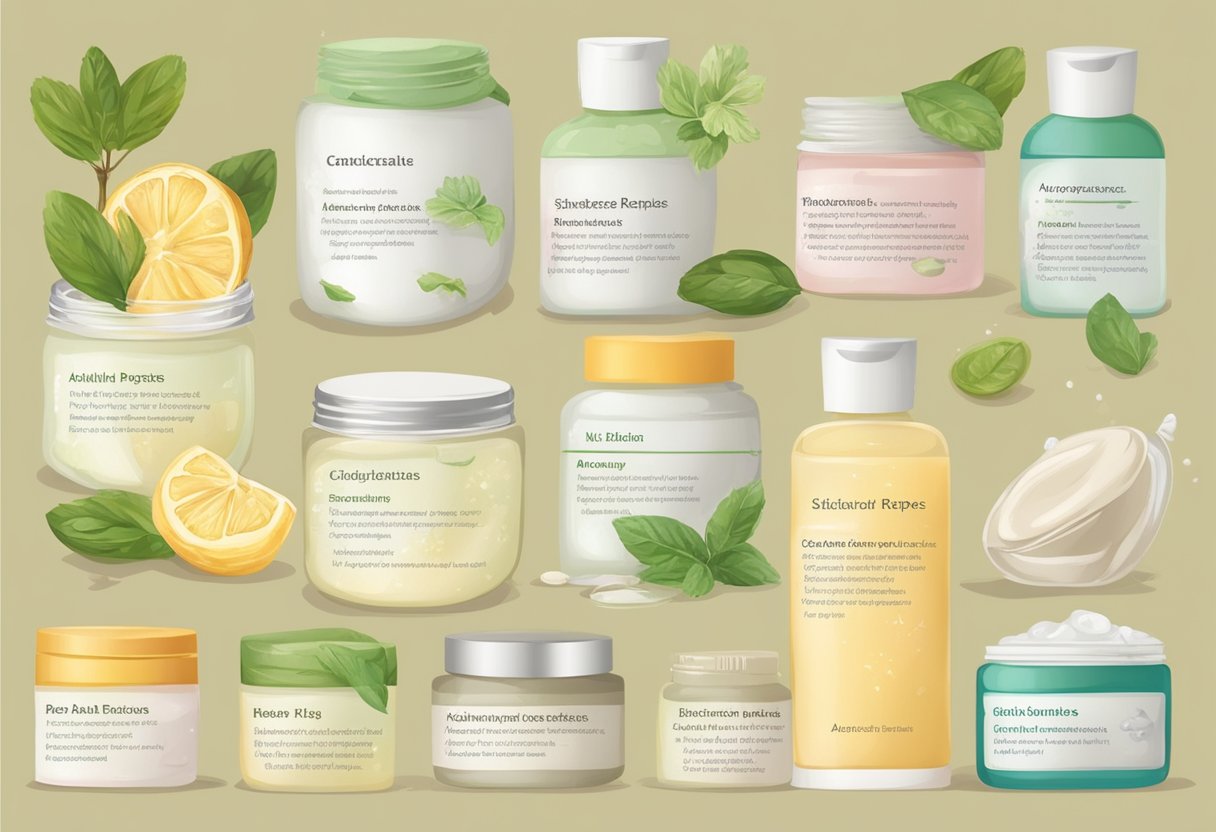
Taking care of your skin is essential for maintaining a healthy, glowing complexion.
However, with so many different skin types, it can be challenging to find the right skincare products that work for you. Fortunately, there are plenty of natural skincare recipes that you can make at home that are tailored to your specific skin type.
Recipes for Dry Skin
If you have dry skin, it's crucial to use skincare products that will help hydrate and moisturise your skin. Here are a few recipes that can help:
Avocado Face Mask: Mash half an avocado and mix it with a tablespoon of honey. Apply the mixture to your face and leave it on for 15-20 minutes before rinsing it off with warm water. Avocado is rich in healthy fats and vitamins that can help nourish and moisturise dry skin.
Oatmeal Bath Soak: Grind a cup of oatmeal in a blender and add it to your bathwater. Soak in the bath for 15-20 minutes to help soothe and hydrate dry skin.
Recipes for Oily Skin
Oily skin can be challenging to manage, but there are plenty of natural ingredients that can help regulate oil production and keep your skin looking healthy. Here are a few recipes to try:
Egg White Face Mask: Beat an egg white until it's frothy and apply it to your face. Leave the mask on for 15-20 minutes before rinsing it off with warm water. Egg whites contain proteins that can help tighten and tone oily skin.
Tea Tree Oil Toner: Mix a few drops of tea tree oil with water in a spray bottle and use it as a toner after cleansing your skin. Tea tree oil has antibacterial properties that can help reduce oiliness and prevent breakouts.
Recipes for Combination Skin
Combination skin can be tricky to manage because it has both dry and oily areas. Here are a few recipes that can help balance your skin:
Honey and Lemon Face Mask: Mix a tablespoon of honey with a few drops of lemon juice and apply it to your face. Leave the mask on for 15-20 minutes before rinsing it off with warm water. Honey is a natural humectant that can help hydrate dry skin, while lemon juice can help regulate oil production.
Green Tea Toner: Brew a cup of green tea and let it cool. Use a cotton pad to apply the tea to your face after cleansing. Green tea contains antioxidants that can help soothe and balance combination skin.
Recipes for Sensitive Skin
If you have sensitive skin, it's essential to use gentle, natural ingredients that won't irritate your skin. Here are a few recipes to try:
Aloe Vera Gel: Apply pure aloe vera gel to your face as a moisturiser. Aloe vera has anti-inflammatory properties that can help soothe and calm sensitive skin.
Chamomile Face Mist: Brew a cup of chamomile tea and let it cool. Pour the tea into a spray bottle and use it as a face mist throughout the day. Chamomile has anti-inflammatory properties that can help reduce redness and irritation in sensitive skin.
By using these natural skincare recipes, you can give your skin the care and attention it deserves.
Remember to always patch test new ingredients before using them on your face and consult with a dermatologist if you have any concerns about your skin.
Creating a Self-Care Routine
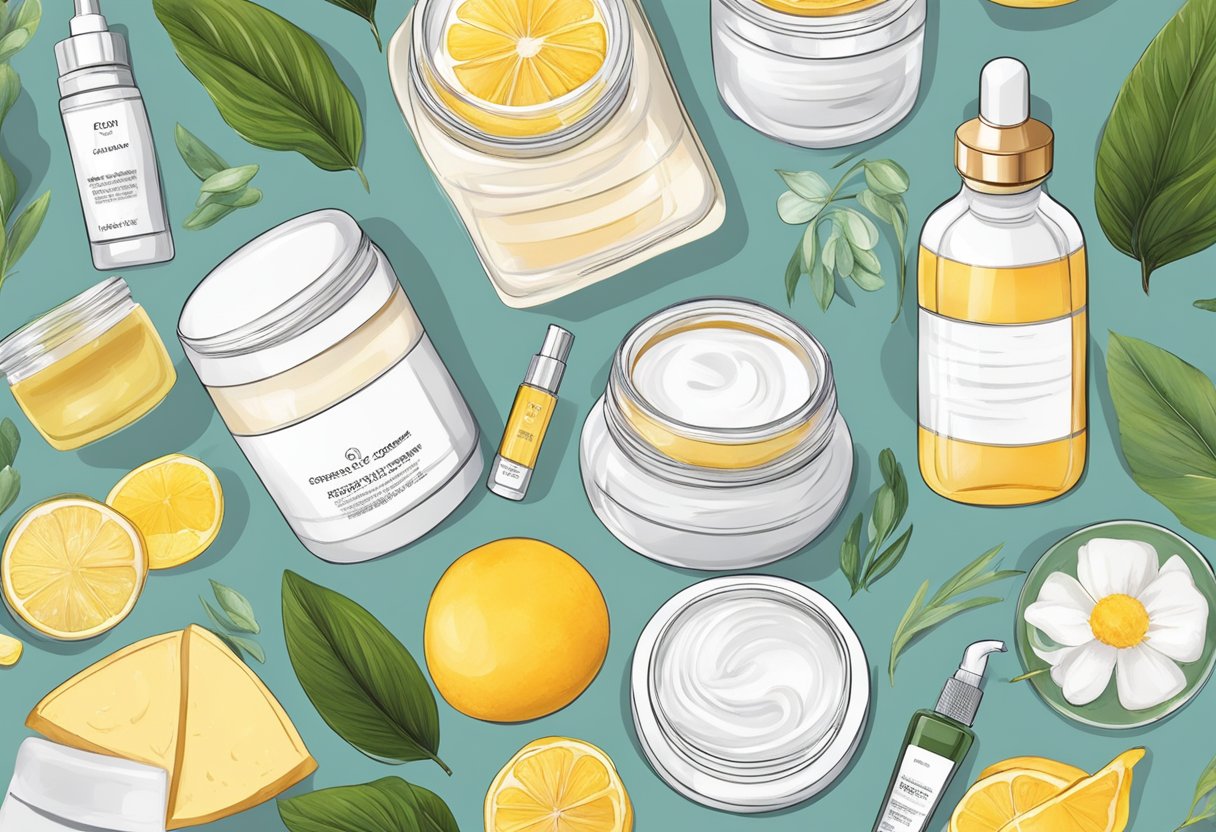
Taking care of your skin is an essential part of self-care.
Creating a skincare routine can help you to relax, unwind, and boost your confidence. Here are some tips to help you create a self-care routine that works for you.
Morning Skincare Regime
Your morning skincare routine should be focused on protecting your skin from the elements and preparing it for the day ahead. Here are some steps to include in your morning routine:
- Cleanse your face with a gentle cleanser to remove any dirt or oil that may have accumulated overnight.
- Apply a toner to balance your skin's pH levels and prepare it for the next steps.
- Apply a serum or facial oil to hydrate and nourish your skin. Look for products that contain ingredients like vitamin C, hyaluronic acid, or niacinamide.
- Apply a moisturizer with SPF to protect your skin from the sun's harmful UV rays.
Night Skincare Regime
Your night skincare routine should be focused on repairing and rejuvenating your skin while you sleep. Here are some steps to include in your night routine:
- Remove your makeup with a gentle makeup remover or cleansing oil.
- Cleanse your face with a gentle cleanser to remove any remaining dirt or oil.
- Apply a toner to balance your skin's pH levels and prepare it for the next steps.
- Apply a serum or facial oil to hydrate and nourish your skin. Look for products that contain ingredients like retinol, peptides, or glycolic acid.
- Apply a moisturizer to seal in the moisture and help your skin repair itself overnight.
By following these steps, you can create a skincare routine that helps you to relax, unwind, and take care of your skin.
Remember to choose products that work for your skin type and concerns, and don't be afraid to experiment until you find the perfect routine for you.
Precautions and Tips for Skincare Recipes
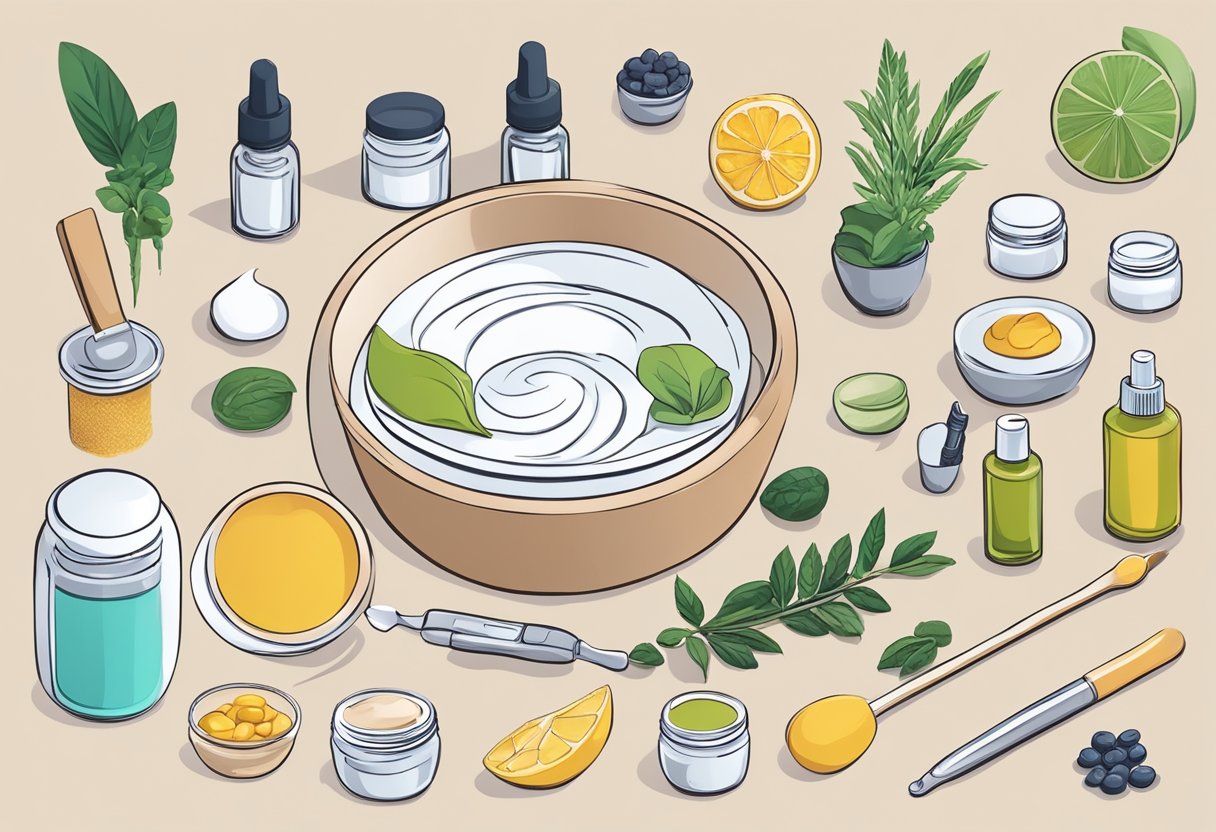
When using skincare recipes for your self-care routine, it's important to take certain precautions to avoid any adverse reactions. Here are some tips to keep in mind:
- Always perform a patch test before applying a new skincare product or recipe to your face. Apply a small amount to your inner arm and wait 24 hours to see if any irritation or redness occurs.
- Avoid using ingredients that you are allergic to or that have caused a reaction in the past.
- Be careful not to over-exfoliate your skin, as this can cause irritation and damage. Limit exfoliation to once or twice a week, depending on your skin type.
- Use clean and sterilized equipment when making your own skincare products to avoid contamination and the growth of bacteria.
- Store your homemade skincare products in a cool, dry place away from direct sunlight to extend their shelf life.
- Be mindful of the ingredients you use and their potential interactions with any medications you may be taking. Consult with a healthcare professional if you are unsure.
In addition to these precautions, there are some general tips to keep in mind when creating your own skincare recipes:
- Always use high-quality, natural ingredients that are free from harmful chemicals and additives.
- Be aware of the pH level of your skincare products, as this can affect their effectiveness and compatibility with your skin.
- Use a preservative in your homemade skincare products to prevent the growth of bacteria and extend their shelf life.
- Keep in mind that skincare is not a one-size-fits-all solution. Experiment with different ingredients and recipes to find what works best for your skin type and concerns.
By taking these precautions and following these tips, you can safely and effectively incorporate skincare recipes into your self-care routine.
Conclusion
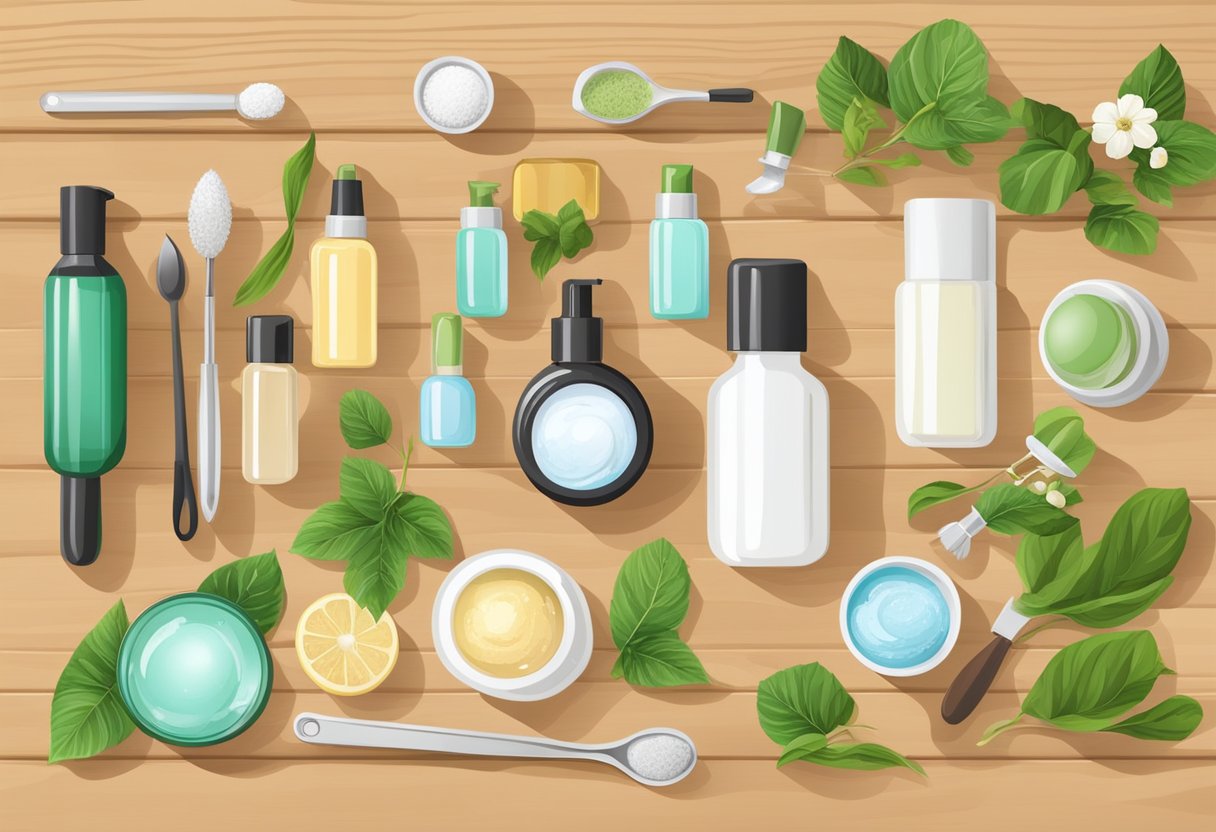
In conclusion, taking care of your skin is an essential part of self-care. It is important to find a skincare routine that works for you and your skin type.
DIY skincare recipes can be a fun and cost-effective way to achieve healthy and glowing skin.
There are countless natural ingredients that can be used in skincare recipes, such as honey, aloe vera, and coconut oil.
These ingredients can be combined to create a variety of skincare products, including cleansers, toners, masks, and moisturisers.
When creating DIY skincare products, it is important to use high-quality ingredients and to follow the recipe instructions carefully.
It is also a good idea to patch test new products before using them on your face, to ensure that you do not have an allergic reaction.
Overall, incorporating DIY skincare recipes into your self-care routine can be a great way to take care of yourself both physically and mentally.
By taking the time to pamper yourself with natural and nourishing ingredients, you can achieve healthy and radiant skin.
